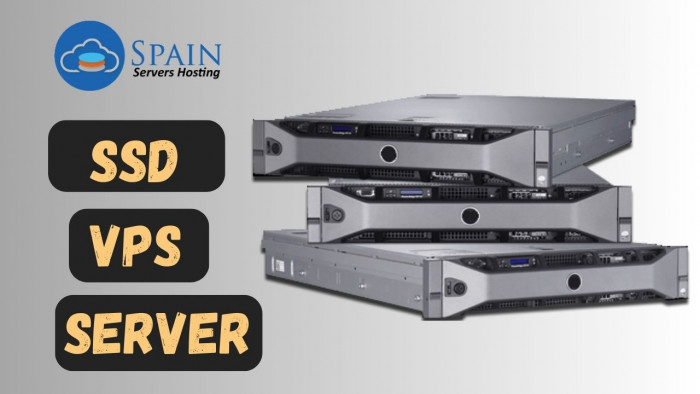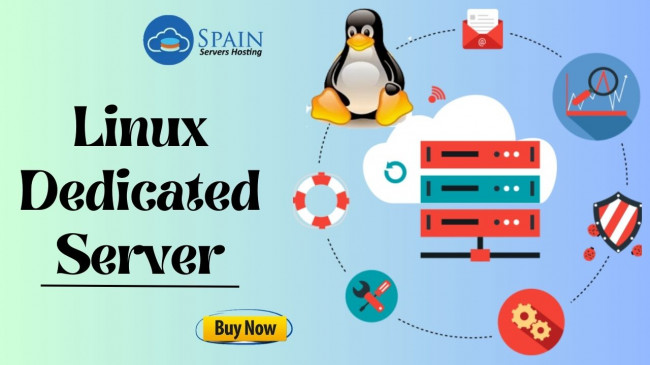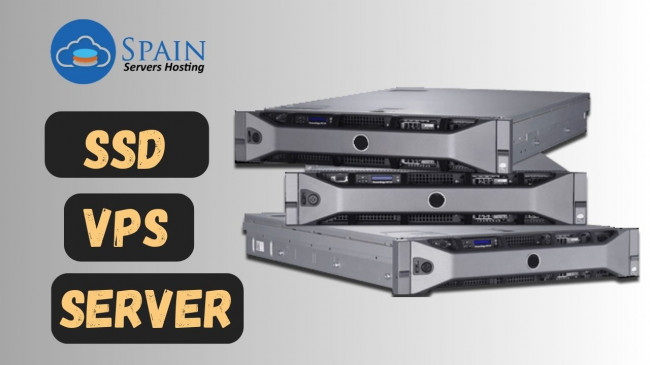
In recent years, the world of web hosting has seen a significant shift towards solid-state drives (SSD). These storage devices offer faster read and write speeds, lower latency, and increased reliability compared to traditional hard disk drives (HDD). As a result, SSD VPS Server hosting has become a popular option for businesses and individuals looking for a high-performance hosting solution.
What is SSD VPS Hosting?
SSD VPS Server hosting refers to a type of hosting where a virtual private server (VPS) is powered by an SSD instead of an HDD. A VPS is a virtual machine that runs its own operating system and has dedicated resources like CPU, RAM, and storage. Unlike shared hosting, where multiple users share the same server, a VPS offers more control and flexibility over your hosting environment.
Why Choose SSD VPS Hosting?
Using a Solid-State Drive (SSD) for your VPS server can greatly improve its performance and reliability. Compared to traditional hard disk drives (HDDs), SSDs offer faster data access times, lower latency, and better overall performance. Overall, SSD VPS servers with better endurance can provide businesses with improved reliability, uptime, and performance, making them a valuable investment for companies with demanding hosting requirements.
Here are some benefits of using an SSD VPS server:
Improved Performance
As mentioned above, SSDs are significantly faster than traditional hard drives. This means that your website or application hosted on an SSD VPS server will load much faster, resulting in a better user experience for your visitors. In addition, SSDs can handle more read and write operations simultaneously than traditional hard drives, making them ideal for hosting applications that require a lot of disk I/O.
Increased Reliability
SSDs are much more reliable than traditional hard drives because they have no moving parts. This means that they are less likely to fail due to physical damage or wear and tear. In addition, SSDs are better at handling power outages and other unexpected interruptions, which can help prevent data loss and downtime.
Better Security
Since SSD VPS servers are isolated from other users on the same physical server, they provide better security than shared hosting. In addition, most SSD VPS servers come with built-in security features such as firewalls and intrusion detection systems, which can help prevent unauthorized access and attacks on your website or application.
Scalability
An SSD VPS server can be easily scaled up or down as your needs change. This means that you can start small and upgrade your resources as your website or application grows, without having to worry about the limitations of shared hosting.
Cost-Effective
While an SSD VPS server is more expensive than shared hosting, it is much more affordable than a dedicated server. This makes it a cost-effective option for businesses and individuals who need more resources than shared hosting can provide but do not have the budget for a dedicated server.
Faster Data Access
SSD have no moving parts, which means that they can access data much faster than HDDs. This results in faster boot times, quicker application launches, and overall snappier performance.
Reduced Latency
SSD have lower latency than HDD, which means that data can be retrieved and written more quickly. This is particularly important for applications that require fast access to data, such as databases or web servers.
Improved Energy Efficiency
SSD VPS servers can also contribute to improved energy efficiency. Compared to traditional spinning hard drives, SSDs consume less power and generate less heat, which can lead to lower energy costs and a reduced carbon footprint. Additionally, SSDs have no moving parts, which makes them more durable and less prone to failure, reducing the need for replacement and disposal, further contributing to sustainability efforts.
Better Endurance
SSD VPS servers have better endurance compared to traditional spinning hard drives. This is because SSDs have no moving parts, which means there is less mechanical wear and tear over time. This results in longer lifespans for the drives and better endurance under heavy workloads.
When choosing an SSD VPS server, it is important to consider factors such as the amount of storage space, the amount of RAM, and the processing power. You should also choose a reputable hosting provider with a track record of providing reliable and high-performance hosting services.
Who Needs SSD VPS Server Solution?
SSD VPS servers provide businesses with faster performance, improved energy efficiency, better endurance, increased reliability, scalability, and enhanced security, making them a valuable investment for companies with demanding hosting requirements.
SSD VPS server solutions can be useful for a variety of individuals and businesses, including:
Website owners who need a reliable and fast hosting solution for their website.
E-commerce businesses that require a high level of security and performance to handle online transactions.
Software developers who need a virtual environment to develop and test their applications.
Startups that need a scalable hosting solution that can grow with their business.
Digital agencies that need to host multiple websites or applications for their clients.
Online gaming companies that require a fast and responsive hosting solution for their games.
Big data companies that require a high-performance server to process large amounts of data.
Companies with remote employees who need access to a virtual desktop environment.
Video streaming services that require a high-bandwidth and low-latency hosting solution.
Anyone who needs a reliable and powerful server to run their applications or services.
Considerable Facts
How SSD VPS Servers Work: SSD VPS servers use solid-state drives (SSDs) for storage instead of traditional spinning hard drives. SSDs are made up of interconnected flash memory chips that store data, making them faster and more reliable compared to traditional hard drives.
Types of SSD VPS Servers: There are different types of SSD based VPS servers available, including unmanaged and managed servers. Unmanaged servers provide complete control over the server, allowing users to configure and manage it as they see fit. Managed servers come with pre-configured settings and technical support from the hosting provider.
Advantages of VPS Servers: VPS servers offer several advantages over traditional hosting solutions, including faster performance, increased reliability, better endurance, enhanced security, improved energy efficiency, scalability, and cost-effectiveness.
Use Cases for Cheap VPS Servers: Cheap VPS servers are suitable for a wide range of use cases, including website hosting, e-commerce, software development, startups, digital agencies, online gaming, big data processing, and remote work.
Choosing an SSD VPS Server: When choosing an SSD VPS server, it's important to consider factors such as server specifications, hosting provider reputation, technical support, and pricing. It's also important to choose a server that meets your specific hosting requirements and offers the features and services that you need.
Conclusion
SSD VPS server solutions can be beneficial for a wide range of individuals and businesses, including website owners, e-commerce businesses, software developers, startups, digital agencies, online gaming companies, big data companies, companies with remote employees, video streaming services, and anyone who needs a powerful and reliable server to run their applications or services. SSD VPS servers offer faster performance, higher reliability, and better security compared to traditional hosting solutions, making them a popular choice for businesses and individuals with demanding hosting requirements.














